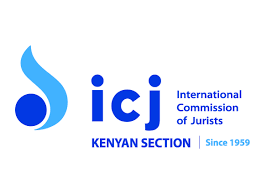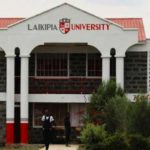The Kenyan Section of the International Commission of jurists (ICJ Kenya) is a non-governmental, non-profit and a member based organisation whose aims include development, protection of the rule of law, promotion human rights and safeguard of independence of he judiciary and the legal profession.
- Background
ICJ Kenya is in the process of conducting a study into pandemic responses and civic space in Kenya. For this reason, we are looking for a consultant to conduct research in Kenya, assessing:
- How the government used various measures, including emergency powers, laws and policies, and public participation strategies to respond to the COVID-19 pandemic and the impact of this response on civic space; or
- Action taken by civil society to ensure that the government’s COVID-19 responses complied with national law and international human rights standards.
The objective of the research is to consolidate learning and best practice that can inform future normative, policy, legal and practical responses to better manage pandemics consistent with respect for fundamental human rights
- Substantive issues (scope of the case study)
The case study should be 7000 words, and include information relative to the following issues:
- In-depth research on all enabling government policies related to Covid-19 that has had a positive impact on civic space, or were generally in compliance with international standards of free association, assembly, expression, or public participation.
- Assessment of any Covid-19 related policies that raised human rights concerns or failed to protect civic space.
- The use of technology and digital tools in Covid-19 management, and examination of their impact on civic space.
- Case studies of how civil society organised to push back successfully in situations where government used emergency powers to restrict the work of civil society, including their freedom of association, peaceful assembly, expression or participation.
- Overall assessment of the country response, analysis based on international standards around human rights and emergency measures, and recommendations based on the findings of the study, including good practice that could be replicated in other countries, and strategies for promoting rights-respecting approaches during pandemic response measures.
Additional issues that need to be taken into consideration during the research and drafting:
- The case studies should be confined to the impact of Covid-19 measures (whether laws, policies and/or practices) on the four key rights, with a bias towards the impact on special interest groups):
- Freedom of association (the ability of organisations to form and carry out their work);
- Freedom of assembly (the ability of people to gather);
- Freedom of expression (how well civil society could get and pass on information, and speak about issues regarding Covid-19 government responses and impacts); and
- Public participation (how civil society organisations were able to engage national institutions like parliament, and whether they were able to play an oversight role – i.e. could they get information from parliament).
- The case studies don’t have to deal with all these rights, but only those for which there is good, credible information and lessons to be learned and shared.
- In identifying legal measures taken to address Covid-19, the focus is not only on laws and policies and directives, but extends to any government action that had an impact on civil society enjoyment of the four rights. (e.g. an example is South Africa where there was military involvement in the policing of measures which had an impact on the right to assemble).
- The case studies should also examine any relevant litigation – whether successful or not – that sought to protect any of the four rights.
- The problem statement at the beginning of the case studies should be short and sharp – the main focus is an examination of how civil society has navigated and pushed back against the prevailing environment.
- The research will be shared with a broad range of audiences, so keep this in mind when formulating recommendations. This includes regional human rights mechanisms, the UN system (including the UN Special Rapporteur on freedom of association and assembly), civil society organisations, state parties and others.
The consultancy will run for a period of one month.
- Competency and expertise qualifications.
- Knowledge and experience around pandemic measures and civic space issues (generally and in relation to the country of focus);
- Your experience undertaking research and writing policy reports;
- Depth of experience with the subject matter of this research consultancy and experience researching and writing similar reports;
- Ability to multi-task in a high-pressure environment, respond rapidly to ad hoc requests, meet tight deadlines and ensure diplomacy and tact when engaging with prominent public figures.
- Strong problem- solving skills, with a high degree of personal and professional organization.
- Ability to work independently and flexibly to deliver the agreed outputs and respond to feedback in a timely and professional manner.
- Possess excellent interpersonal and communication skills, including strong writing and presentation skills in the English language.
- High level of integrity and ability to maintain confidentiality.
- Selection Criteria
Applications will be evaluated based on the following factors:
- Compliance with eligibility requirements and application procedures;
- Depth of experience with the subject matter of this research consultancy and experience researching and writing similar reports;
- Commitment to producing high quality reports in a timely manner; and
- Proposed budget and value for money.
- Reporting and management arrangements
The Consultant shall work closely with the Programme Officer at ICJ Kenya
- Application procedure
Applications should include the following:
- A detailed Curriculum Vitae (CV) highlighting qualifications and experience relevant to this assignment.
- Brief cover letter as to proposed method of carrying out the assignment
- Two (2) Referees (with contact details)
Interested applicants should submit their applications by way of a cover letter motivating their application, accompanied by a CV (maximum three (3) pages) with details of three (3) referees to support work of a similar nature.
Applications should be addressed to the Executive Director and sent by email to info@icj-kenya.org and copy procurement@icj-kenya.org to be received on or before the 10th of October 2022.
Disclaimer: Only successful candidates will be contacted through our official communication channels.














